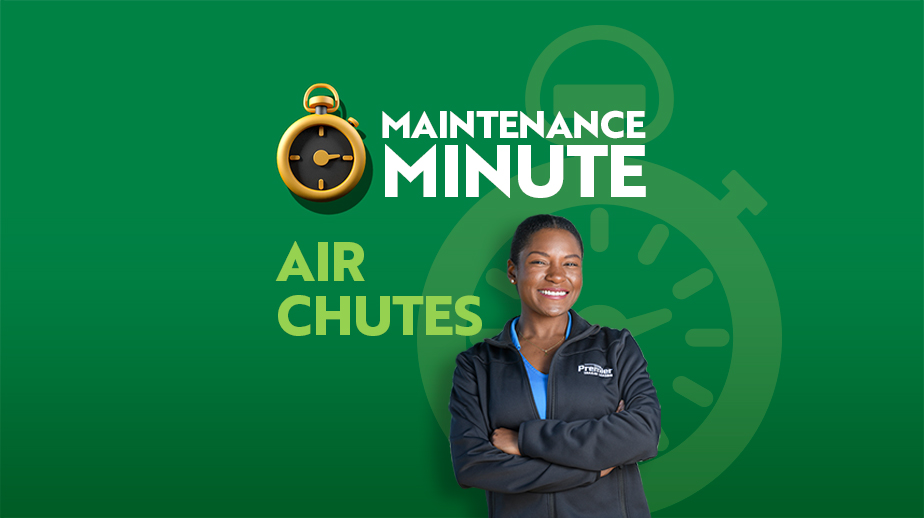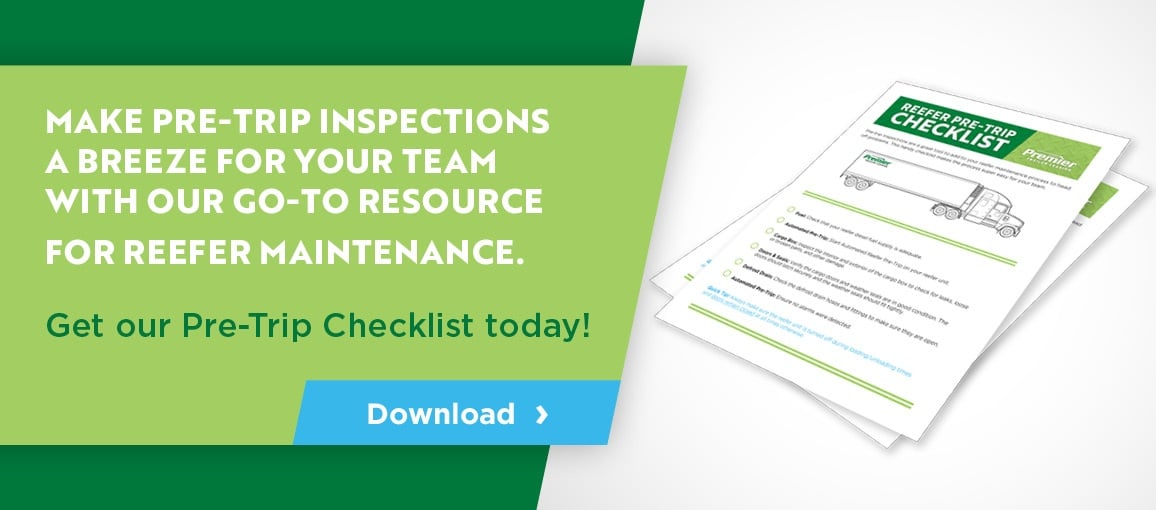In the fast-paced world of refrigerated transportation, where precision is paramount, a seemingly inconspicuous component plays a crucial role in ensuring the integrity of perishable goods.
Today, in another episode of Maintenance Minute, we're shedding light on the unsung heroes of temperature control within your reefers – air chutes. Join us as we explore why air chutes are indispensable, how they function, and the measures you can take to safeguard them against forklift-related incidents.
Why Air Chutes Matter
Reefer air chutes are more than just tubes or conduits; they are the lifeline of your cargo's temperature control. Without them operating at peak performance, your perishable goods and the efficiency of your transportation operation are at risk. So, what exactly happens in a reefer equipped with an air chute?
Imagine the scenario: your reefer trailer is filled with a diverse goods, from fresh produce to pharmaceuticals, all requiring precise temperature maintenance. The discharge air is distributed through the air chute, ensuring an even distribution along the sides and, most importantly, to the rear of the trailer. This is particularly critical because the rear of the trailer is often the hot spot, where receiving customers frequently check the temperature upon arrival. Maintaining consistent temperatures throughout the trailer becomes a formidable challenge without functioning air chutes.
Protecting Air Chutes from Forklift Incidents
One of the primary challenges in using air chutes successfully is safeguarding them against potential damage caused by forklifts and other equipment. Forklifts are essential tools in the logistics industry, but their operation near air chutes can pose a significant risk. To mitigate this risk, a simple yet highly effective solution is to install a mesh at the end of the chute, securely fastened to the ceiling.
This mesh allows forklift operations to function seamlessly without causing damage to the air chute. At Premier, we've witnessed how this small but crucial addition can save you from costly repairs and cargo losses. By investing in this protective measure, you not only protect your cargo but also maintain the efficiency of your temperature control system.
Additional Tips for Air Chute Maintenance
In addition to the mesh protection, here are a few tips to ensure the longevity and functionality of your air chutes:
1. Visual Inspections: Regularly inspect your air chutes for signs of damage. Look for torn or unsecured areas that could potentially hamper the airflow. Damaged chutes can be caused by forklift loading and must be addressed promptly to avoid temperature discrepancies.
2. Training: Properly train your forklift operators on the importance of air chutes in maintaining cargo quality. Emphasize their role in preserving the integrity of temperature-sensitive goods and the overall efficiency of your transportation process.
In the world of reefer transport, the significance of well-maintained and protected air chutes cannot be overstated. These unassuming components are the unsung heroes that ensure your cargo arrives at its destination in the best possible condition.
If you have any questions about reefer maintenance or air chutes, don't hesitate to reach out to us. At Premier, we're always here to help you navigate the intricacies of refrigerated transportation and keep your cargo cool, fresh, and secure.




